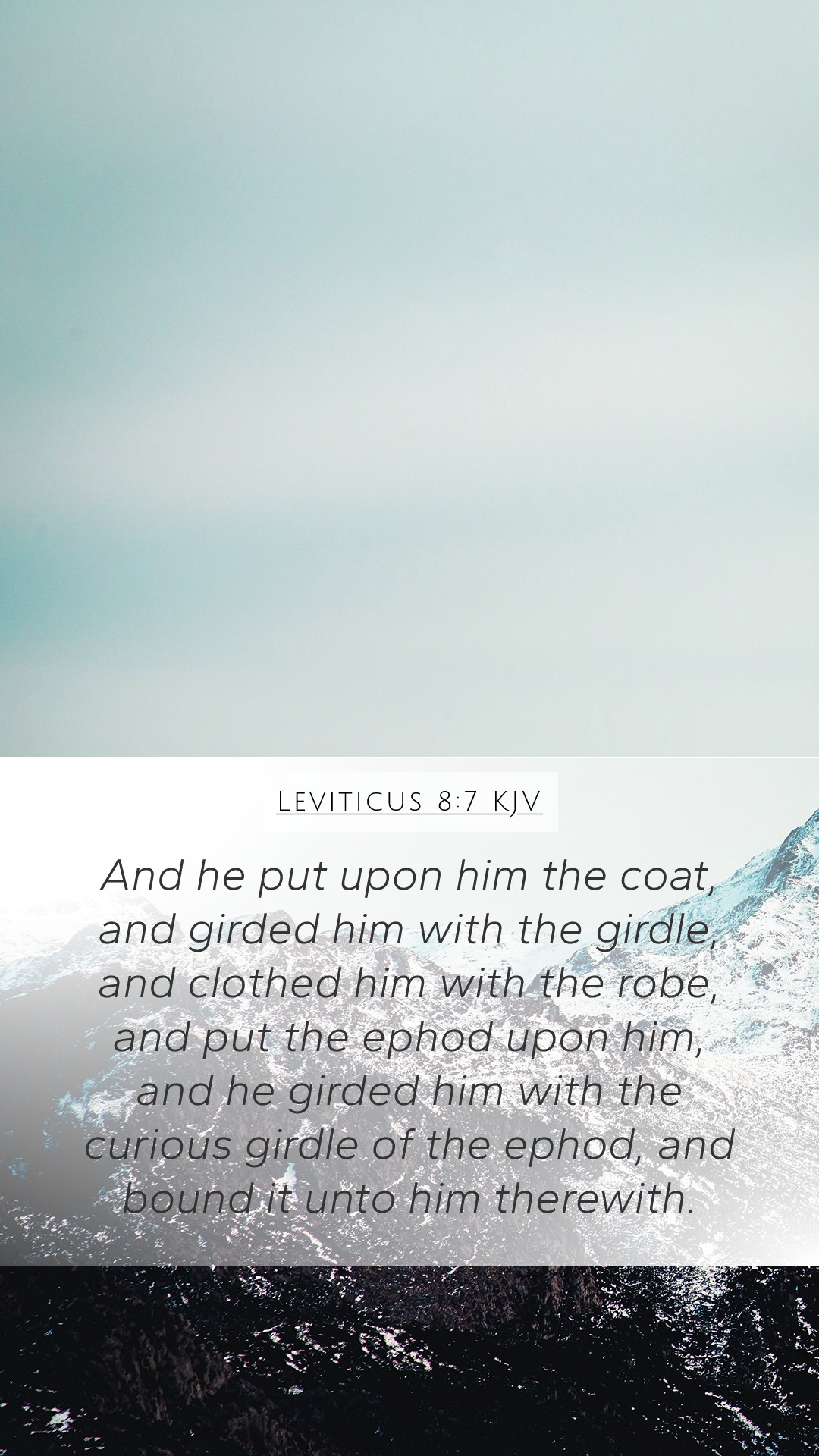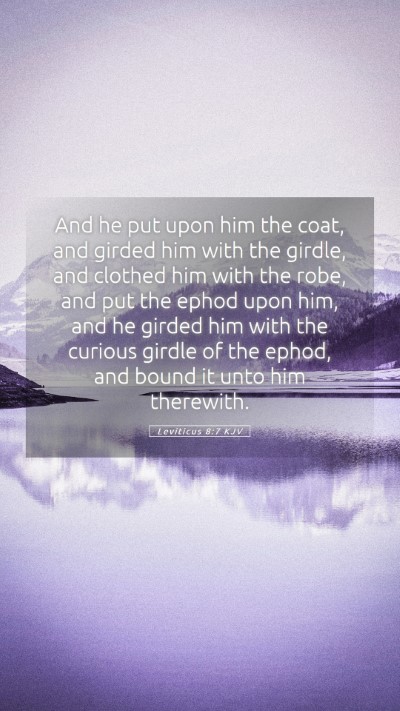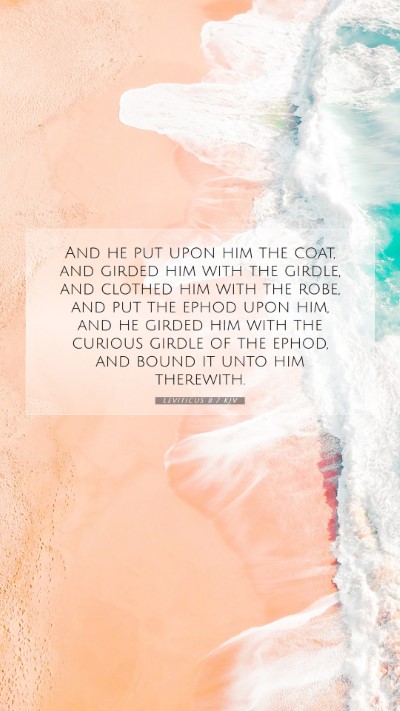Understanding Leviticus 8:7
Leviticus 8:7 states: "And he put upon him the coat, and girded him with the girdle, and clothed him with the robe, and put the ephod upon him, and he girded him with the curious girdle of the ephod, and bound it unto him therewith."
This verse details the ceremonial clothing of Aaron as the high priest, signifying his consecration and role in the service of God. Let’s explore the meanings and insights from various public domain commentaries for better understanding.
Bible Verse Commentary
-
Matthew Henry's Commentary
Matthew Henry highlights the importance of the ceremonial robes as representations of the high priest's dignity and the sanctity of the priestly office. Clothing in the context of Leviticus serves both a practical and symbolic purpose—it indicates the separation of the priest for holy service. The robes also emphasize the need for purity and obedience as prerequisites for approaching God.
-
Albert Barnes' Notes on the Bible
Barnes notes that each piece of attire mentioned has specific significance. The coat represents righteousness and the girdle signifies strength and service readiness. The ephod, adorned with precious stones, symbolizes the value and importance of the priest's intercessory role, portraying that he carries the people before God on his heart.
-
Adam Clarke's Commentary
Clarke emphasizes the meticulous details surrounding the priestly garments to highlight their intentional design. Each part—the robe, the girdle—was specific to the high priest's role in the Tabernacle service. Clarke also connects this to the broader theme of God’s holiness and the necessary adornment for those who minister in divine matters, underscoring a theme of separation unto God.
Insights into the Meaning of Leviticus 8:7
This verse illustrates a moment of transformation for Aaron as he is prepared for the high priesthood. The actions taken in dressing him convey not only the external significance of ritual but also an internal preparation of heart and mind for God’s service. In studying this verse, we find various layers of interpretation that contribute to a deeper understanding of biblical priesthood and its relevance.
Concepts and Themes
- Holiness: The requirements of clothing reflect the internal holiness necessary for serving in God’s presence.
- Representation: The high priest serves as a bridge between God and man, with clothing signifying this role.
- Preparation: The act of dressing Aaron signifies the need for preparation before undertaking a holy responsibility.
Application to Daily Life
Understanding Leviticus 8:7 and its implications on priestly duties can offer valuable lessons for modern application, such as:
- Recognizing the importance of preparation, both outwardly and inwardly, for any service unto God.
- Acknowledging the calling to represent God's holiness in everyday activities, much like the high priest represented the people.
- Understanding the need for intentionality in one’s spiritual life, equipping oneself with the tools necessary to serve God effectively.
Cross References
- Exodus 28:2 - Description of the priestly garments.
- Hebrews 5:4 - Speaking about the honor associated with the priesthood.
- 1 Peter 2:9 - The concept of believers as a royal priesthood.


